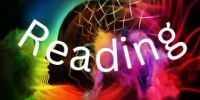The Science of Reading: How to teach decodable readers in the Early Years

The early phases of learning to read are critical because they set the stage for later reading and are even linked with later risk for social-emotional and health problems. As teachers, we know that not all Lower Primary books are created equally and the features and demands of these books in this space are varied and unique.
This presentation highlights the difference between early-grade books and upper-grade books and how they are designed to facilitate young pupils’ progress.
- We explore certain features within a book that helps reading growth and the development of code-cracking.
- We look at how pupils who read highly decodable books can outperform readers who read books with repetition of high-frequency words.
- Teachers are also shown how to differentiate between books that have the same readability level by looking at certain text characteristics.
Learning Outcomes
- Teachers will learn to support pupil’s reading growth by appreciating the specialness of early-grade texts.
- Evaluate the most essential characteristics that make books complex.
- How to look out for text-characteristic see-saw patterns
- Equip teachers with a firm grasp of what makes a book more or less complex
- Learn how books with different profiles can help to support the development of reading skills like decoding or using context
Course Properties
| Course date | 09-01-2023 7:00 pm |
| End Date | 09-01-2023 8:00 pm |
| Fee | Free |
| Speaker | Edmond Scannell |
| Select Hours | 1 |
| Location | Online |